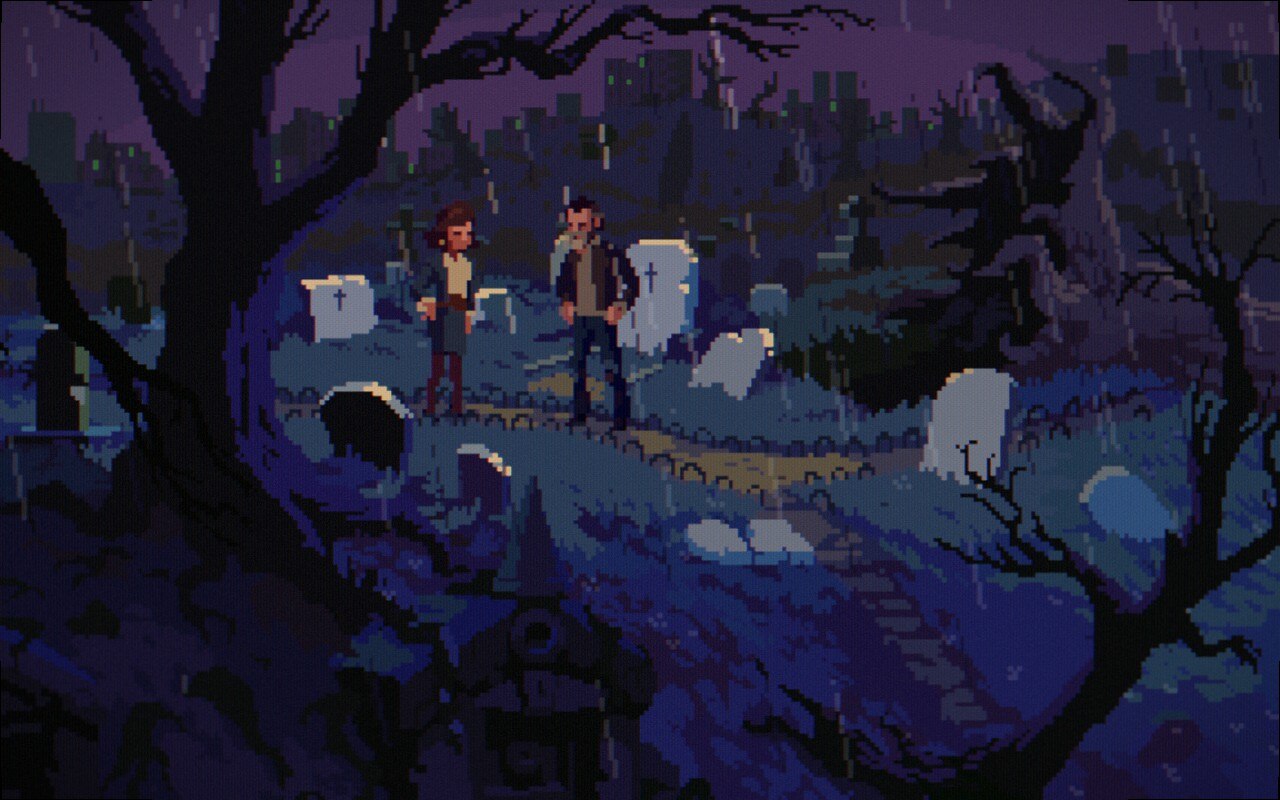8 underappreciated games of 2023 that we think deserve way more players
How many have you heard of, or played? Find time for at least one of these outstanding gems.
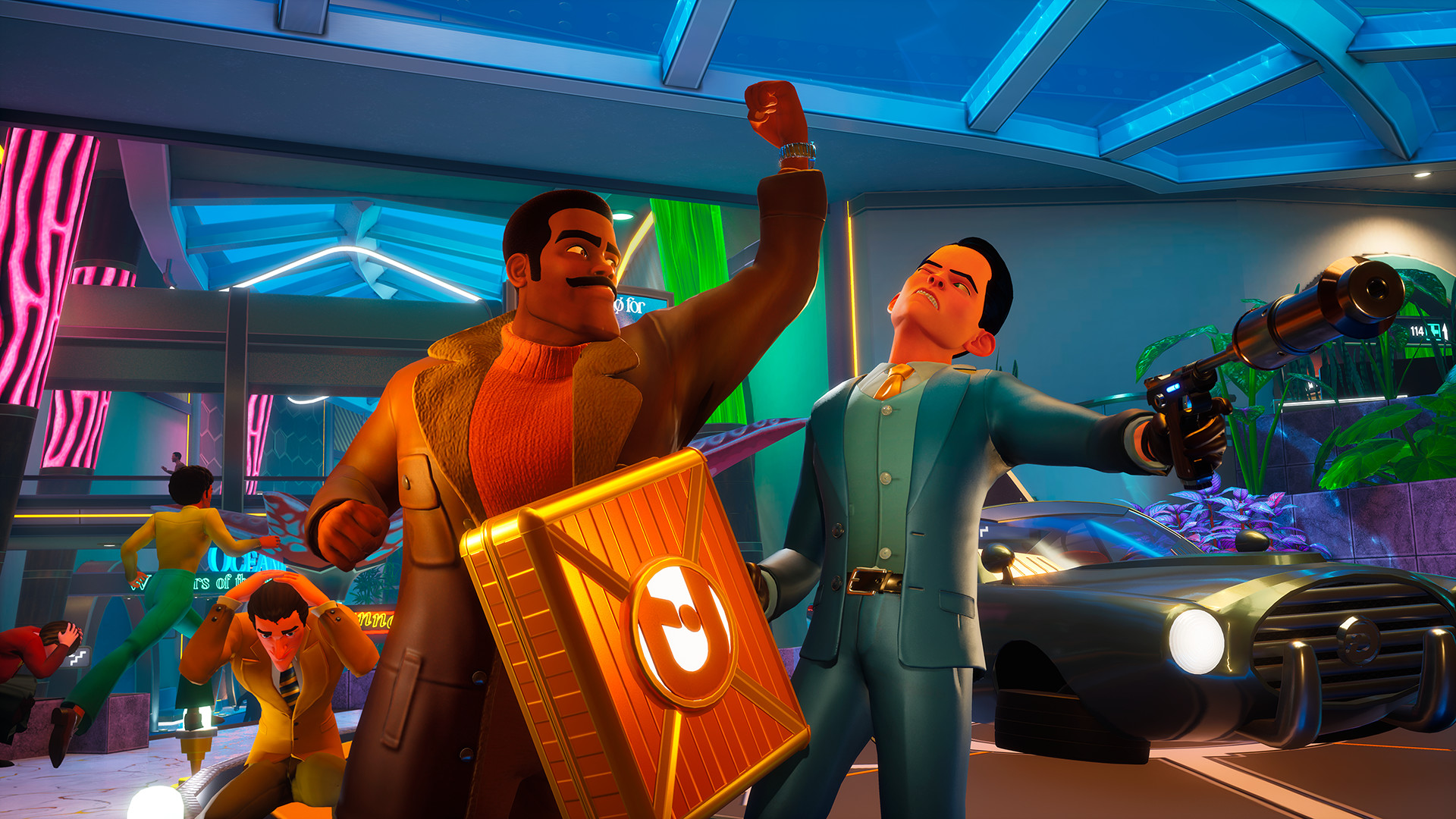
The defining mood of this era of gaming is definitely FOMO.
Who's got the time to play all these games? You don't have to be a professional writer-about-games to feel it: we are bombarded by new releases and meaningful updates. Even years-old games stage meaningful comebacks.
The market isn't saturated, it's a broken dam flooding a landscape with more products than the world can collectively notice, buy, and play. By the end of the year, 12,000 new games will have released on Steam alone. And in parallel, there's a skyline of towering PC gaming fixtures that want to be played daily: Counter-Strike 2, Valorant, League of Legends, Apex Legends, Rainbow Six Siege, Dota 2, and on and on.
To give a little more daylight to games that we think deserve it, here's a handful we think you shouldn't go into 2024 without noticing.
Xenotilt
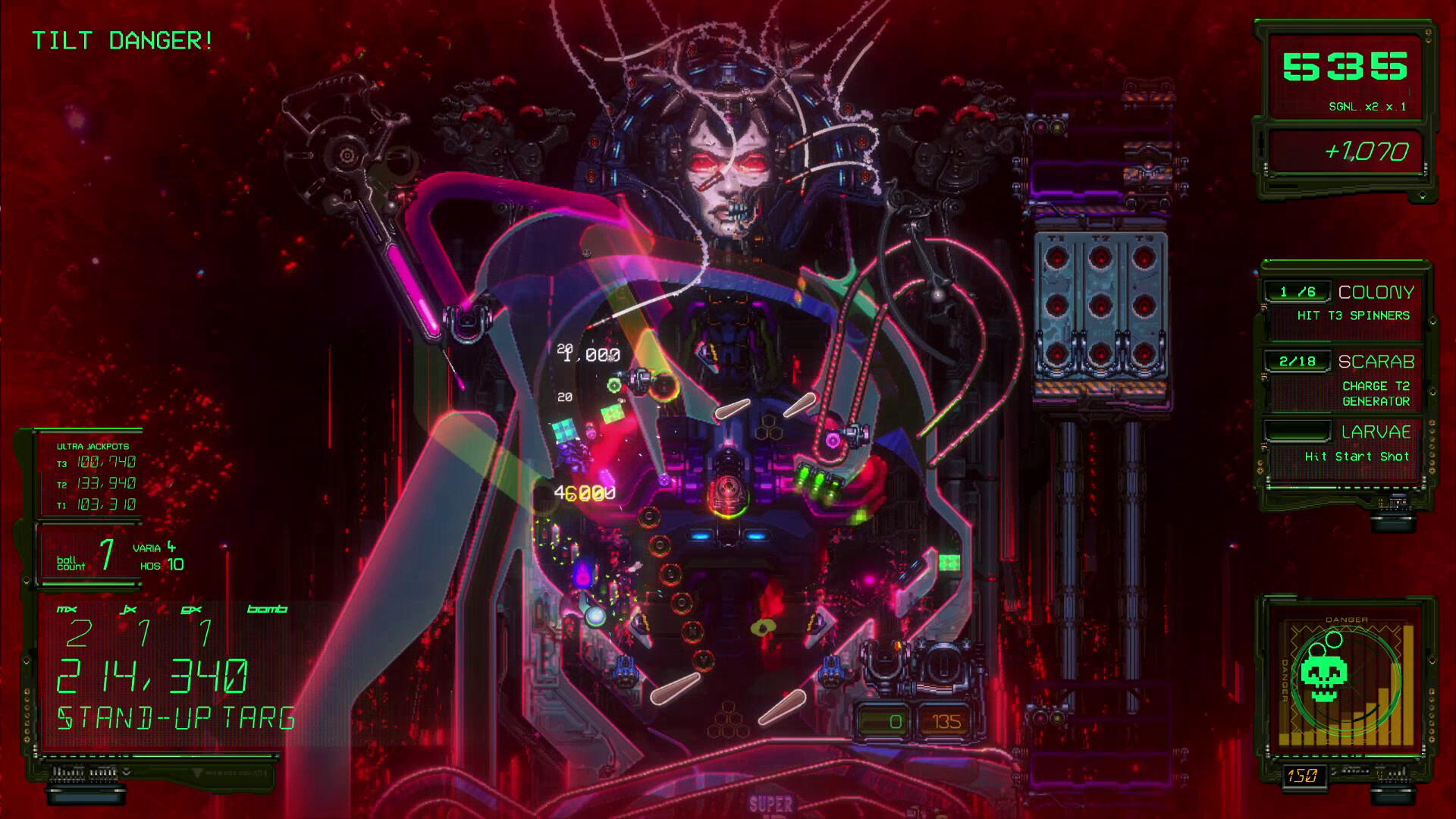
A pinball fistfight against cybernetic gods
Edgy and neon, Xenotilt feels like a pinball machine manufactured by Doom's cyberdemons. I love the way it stokes antagonism against the playfield—you're not just racking up points, you're activating turrets that chew up streams of Centipede-like bugs, dodging pink energy blasts that deflect your ball, breaking the individual face plates of miniature alien-robot gods who wince as you smack them with your balls. It's inscrutable in the way that many pinball tables are ("Collect 'XP medals' to earn 'Multiplayer Medals,'" one tooltip states)—at one point my score jumped from 5 billion to 7 billion and I could not, under sworn testimony, explain to you why that happened. But it's also plenty forgiving, encouraging you to manually nudge the ball to keep it in the play field.
Bonus jackpot: if your monitor can rotate 90 degrees, you can play it in 9:16, the hip, cool aspect ratio that all the other kids are using.
—Evan Lahti, Global Editor-in-Chief
Mars First Logistics
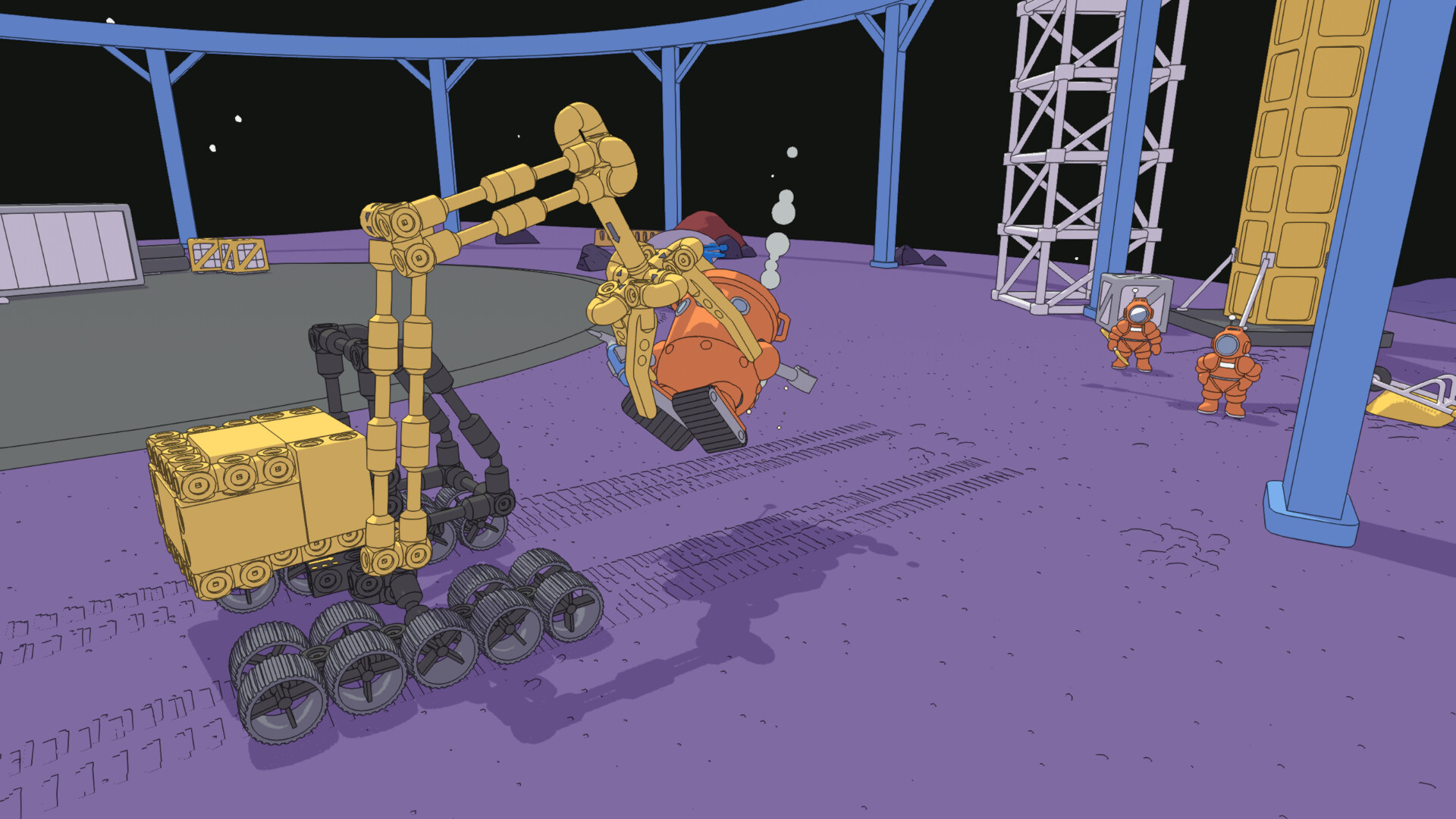
Build simple Mars rovers then complete Death Stranding delivery missions
An indie game made specifically for *me* came to early access in June and I nearly missed it. Mars First Logistics is a simple, gorgeous little driving game about designing vehicles for extremely specific delivery jobs. Need to carry a box? Snap on a wide hook and a piston to pinch it in place for the journey. Next job is a watering can? Replace the tip with a simple hook and servo motor, or go wild with an elaborate vertical crane lift. Developer Shape Shop is updating this one on the regular with new missions, and most recently with Steam Workshop support so that better builders than me can fill in the gaps in my imagination.
—Morgan Park, Staff Writer
Jagged Alliance 3
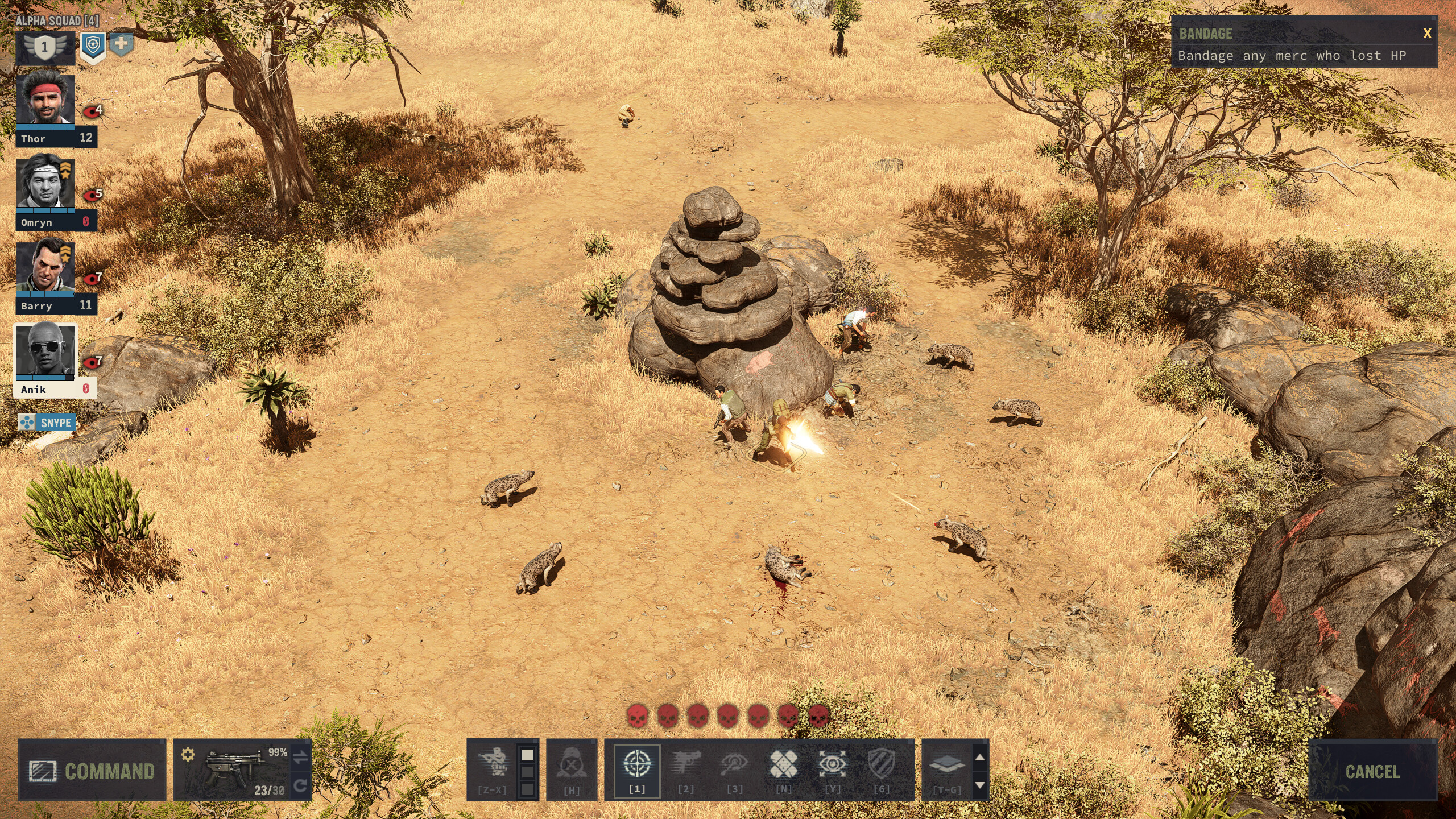
Every '80s action movie, but XCOM
This astoundingly good turn-based strategy game released three weeks before the best turn-based RPG of our lifetimes. Oof. I imagine this feels like dropping your comeback album right before some new Beyoncé.
Jagged Alliance has always been an underdog series, a quirky cocktail of every bad action movie poured into a deliberately-chaotic turn-based strategy mold. With JA3, Bulgarian studio Haemimont Games (Tropicos 3-5, Surviving Mars) elevates this style of RPG-strategy hybrid into a scrappy, go-where-you-want sandbox campaign. You're free to make mistakes, get your mercs permakilled, and lay out intricate jungle ambushes or prison escapes that go all to hell the moment the shooting starts.
Embodies so much of PC's sandbox spirit. Invites you to come up with creative. Also just a substantial campaign that you can grind for 40 hours. It's my single favorite game of the year, a game that synthesized my love of Arma and XCOM.
—Evan Lahti, Global Editor-in-Chief
Super Mega Baseball 4
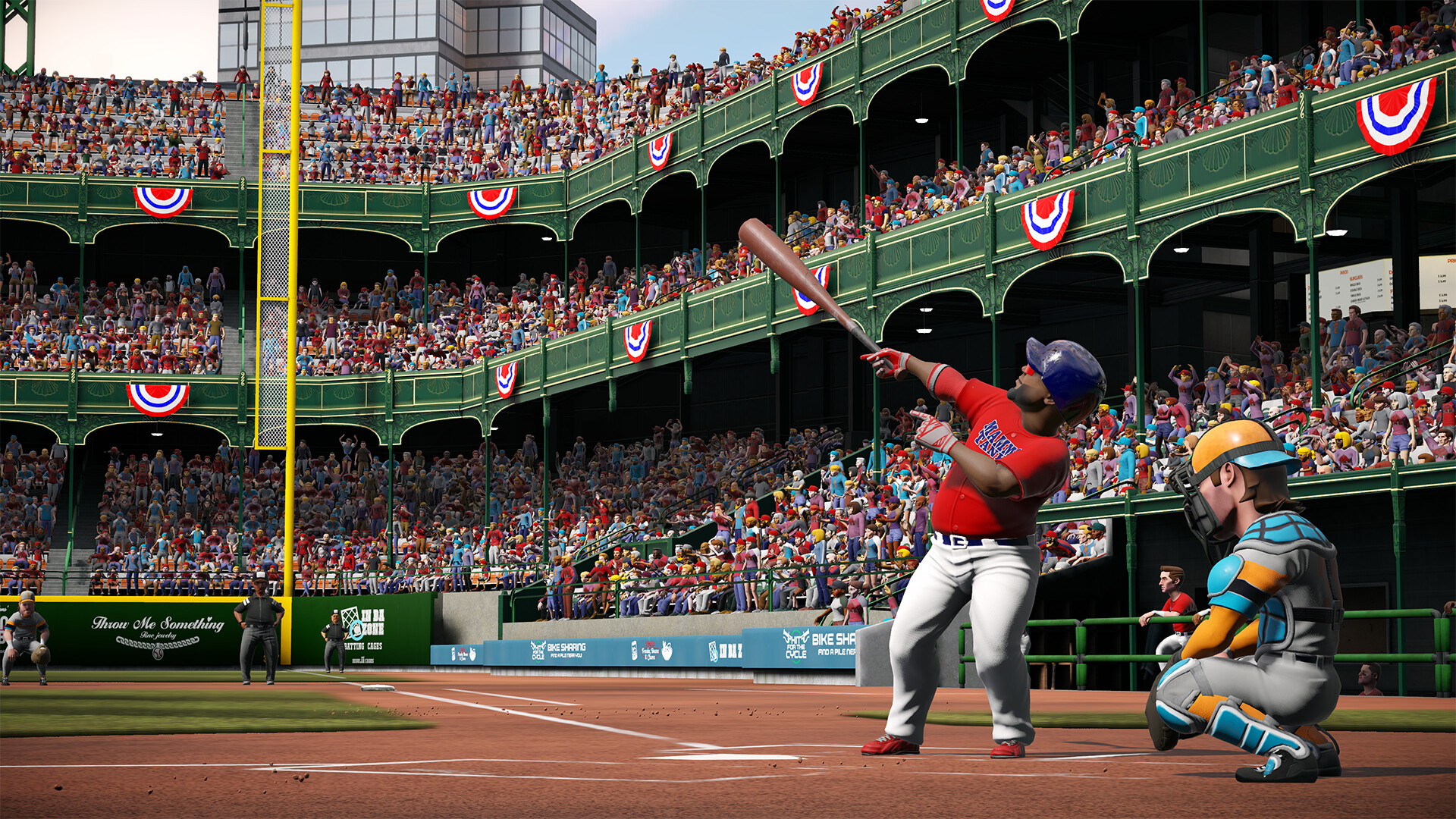
A much-needed on-field baseball game on PC
I've banged the drum for years about MetalHead Software's cartoony yet deep Super Mega Baseball series, and I was a bit concerned when the Canadian developer was absorbed by EA in 2021. Happily, Super Mega Baseball 4 delivers the same depth of managerial decision-making and arcadey on-field play as the SMB3 did. I do wish it had evolved a bit more—there's still no way to directly trade players with other teams, a semi-baffling omission in a baseball game these days—but until we get MLB: The Show on PC, this is a great alternative.
—Chris Livingston, Senior Editor
The Lamplighters League
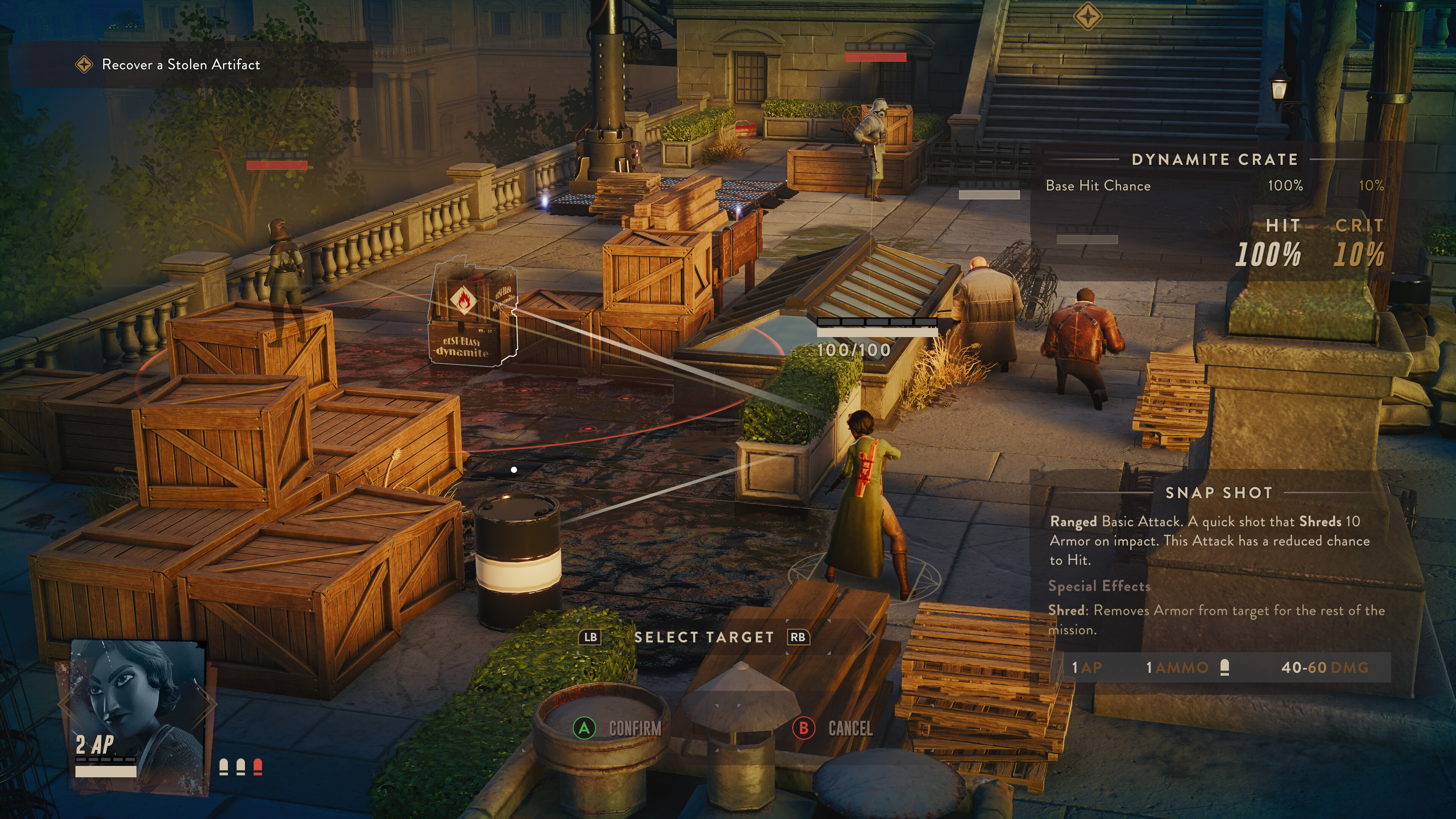
Harebrained Schemes and the Last Crusade
Like Jagged Alliance 3 or Mutant Year Zero: Return to Eden before it, The Lamplighters League mixes turn-based tactics with real-time stealth. What sets it apart is the setting: an alternate 1930s of pulp adventure. Your squad of globetrotting Indianas Jones includes a two-fisted femme fatale and a pistol-packing pilot, as well as weirder heroes with supernatural powers, all adept at sneaky takedowns as well as attacking while dashing from cover to cover.
Pulp's a difficult genre to get people interested in, however. Indiana Jones and The Mummy may have its trappings, but they're really just action movies with charismatic leads—a far safer bet. Modern attempts at actual pulp-serial storytelling usually bomb, and that's what happened to The Lamplighters League. It marked the end of the relationship between developers Harebrained and publisher Paradox, which previously gave us the Shadowrun Trilogy and Battletech. That's a shame, because while this art deco XCOM for Egyptologists won't sell you on turn-based tactics if you're not already a fan, for those who are it's a solid example of the form
—Jody Macgregor, Weekend/AU Editor
Deceive Inc.

A $20 competitive Hitman FPS that punches way above its weight
Deceive Inc. is the perfect cure to a bored Wednesday night: a one-of-a-kind multiplayer game that's a ton of fun and just cheap enough to convince a few friends to try it out ($20). Four teams of three compete to complete the same heist armed with nifty spy gadgets and surprisingly great-feeling guns inspired by the golden age of spy flicks. Imagine a squad-based competitive shooter, but instead of waist-high boxes, your cover is the disguise system from Hitman. A charming, quietly brilliant little FPS and one of the few examples of a competitive stealth game.
—Morgan Park, Staff Writer
Keep up to date with the most important stories and the best deals, as picked by the PC Gamer team.
Aliens: Dark Descent
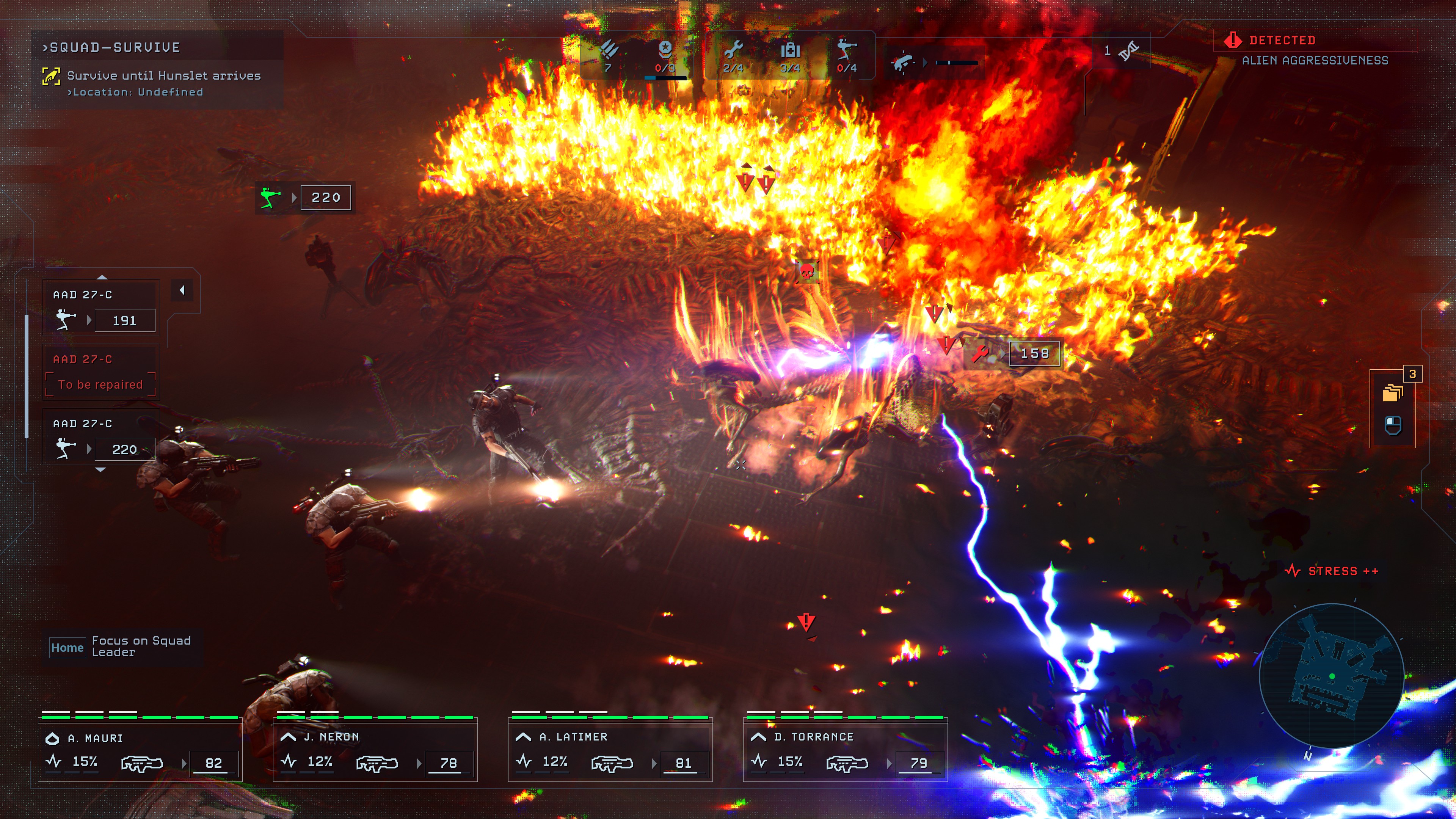
The perfect Aliens game.
Tindalos Interactive's tactical bug hunt deserves to sit next to Alien Isolation as a prime example of how to make the most out of a big licence. But where Isolation channelled the original Alien, Dark Descent is firmly rooted in the more action-heavy sequel. Just like in Aliens, a squad of marines are stuck on a human colony, now infested by xenomorphs, which means lots of tense missions inside austere, poorly-lit buildings slowly being consumed by the alien hive.
Dark Descent features a bunch of different xenomorph types, but even the common drone is a real danger. Dark Descent manages to make these iconic critters still feel like terrifying adversaries, even when you're mowing them down or setting them on fire. A fresh squad of marines can easily handle a few of them thanks to their impressive firepower, which includes deployable turrets. But things can get nasty when you get backed into a corner. When the xenomorphs encircle you and get close, you're probably going to have some casualties on your hands. It strikes a perfect balance between action movie power fantasy and genuine horror. Basically, just what you want from a game inspired by Aliens.
—Fraser Brown, Online Editor
The Talos Principle 2
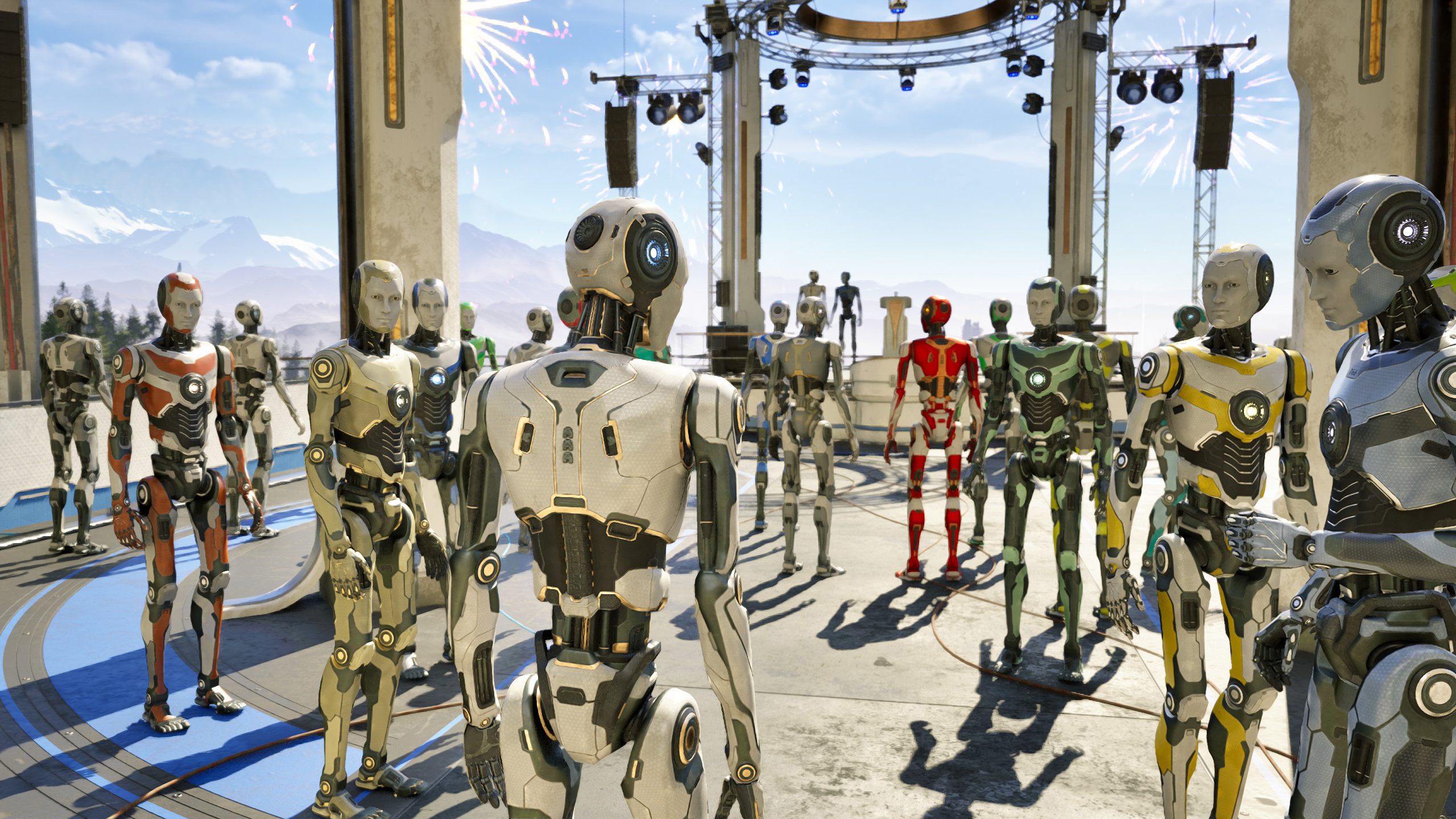
Croteam grows up.
The underlying essence of The Talos Principle 2 is the same as the first game: Humanity is kaput, you're a robot, you solve puzzles to learn about life and shit. But the framing is dramatically different. Ditching the complete isolation of the first game, Talos Principle 2 takes place in a small but advanced civilization of robots, the inheritors of Earth following the extinction of organic humanity, to which you are the latest addition. But despite its advanced technology, this post-human society is gripped in a sort of existential malaise—until the day of your birth, which triggers a bizarre, possibly supernatural phenomenon that heralds what may be either a new start for the world, or the final end of it.
The puzzles are great: Challenging, satisfying, but not so difficult that you'll end up wracking your brain for hours on end trying to solve them—if anything, they're easier than those of the first game. (Either that, or I got really good at solving Talos Principle puzzles between then and now.) But it's the narrative that makes Talos Principle 2 memorable. The robotic citizens of the world are deep, thoughtful people with their own ideas of what the future should bring, and the more I talked to them the more interesting they became. It also quickly became clear that the problem with this brave new world wasn't that the bold experiment that brought it about had failed, but that it succeeded too well: The great, grotesque spectre of humanity hangs over everything, and it turns out that robotic humans aren't much better at getting their shit together than the flesh-and-bone kind. The weight of the ancient, often ugly history of their predecessors sets up a complex and nuanced tale of a people trying to find their way into the future without repeating the mistakes of the past. It's a wonderful, well-told story that leads to a climax I found genuinely unexpected and exciting.
I love Serious Sam, but my days of thinking of Croteam as "the Serious Sam guys" are over. The Talos Principle 2 is leaps and bounds beyond what the studio has done in the past, and it deserves to be a hit—and I hope we get more.
—Andy Chalk, NA News Lead

Evan's a hardcore FPS enthusiast who joined PC Gamer in 2008. After an era spent publishing reviews, news, and cover features, he now oversees editorial operations for PC Gamer worldwide, including setting policy, training, and editing stories written by the wider team. His most-played FPSes are CS:GO, Team Fortress 2, Team Fortress Classic, Rainbow Six Siege, and Arma 2. His first multiplayer FPS was Quake 2, played on serial LAN in his uncle's basement, the ideal conditions for instilling a lifelong fondness for fragging. Evan also leads production of the PC Gaming Show, the annual E3 showcase event dedicated to PC gaming.

